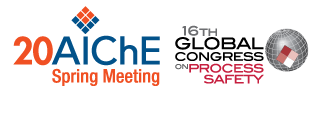

Adsorbent bed treating systems are common in refineries and petrochemical manufacturing facilities and have widespread applications. They are used to dry instrument air, remove sulfur species and CO2, to meet product specifications, remove poisons from reactor feed streams, and remove water and CO2 from cryogenic fractionation trains.
Over time, changes in operating conditions may warrant a review of the treater design, operation, and regeneration procedures to improve efficiency. With changes to energy and utility costs, and improvements in desiccant technology, treaters that have been in service for a while may benefit from a fresh evaluation.
This paper discusses the operation of adsorbent beds and the typical costs associated with regenerating them. It also identifies methods for reviewing operation and regeneration techniques to reduce operating costs and emissions, using examples from an ethylene plant.
Presenter(s)
Once the content has been viewed and you have attested to it, you will be able to download and print a certificate for PDH credits.
If you have already viewed this content,
please click here
to login.
Language
Pricing
Individuals
| AIChE Member Credits | 0.5 |
| AIChE Pro Members | $19.00 |
| Fuels and Petrochemicals Division Members | Free |
| AIChE Graduate Student Members | Free |
| AIChE Undergraduate Student Members | Free |
| AIChE Explorer Members | $29.00 |
| Non-Members | $29.00 |
